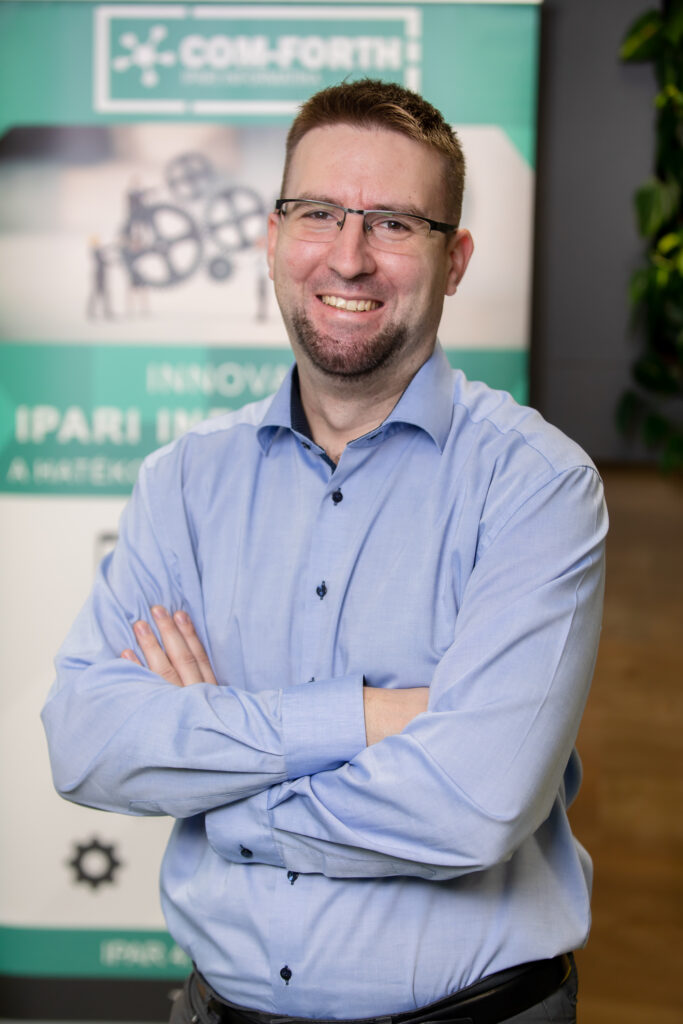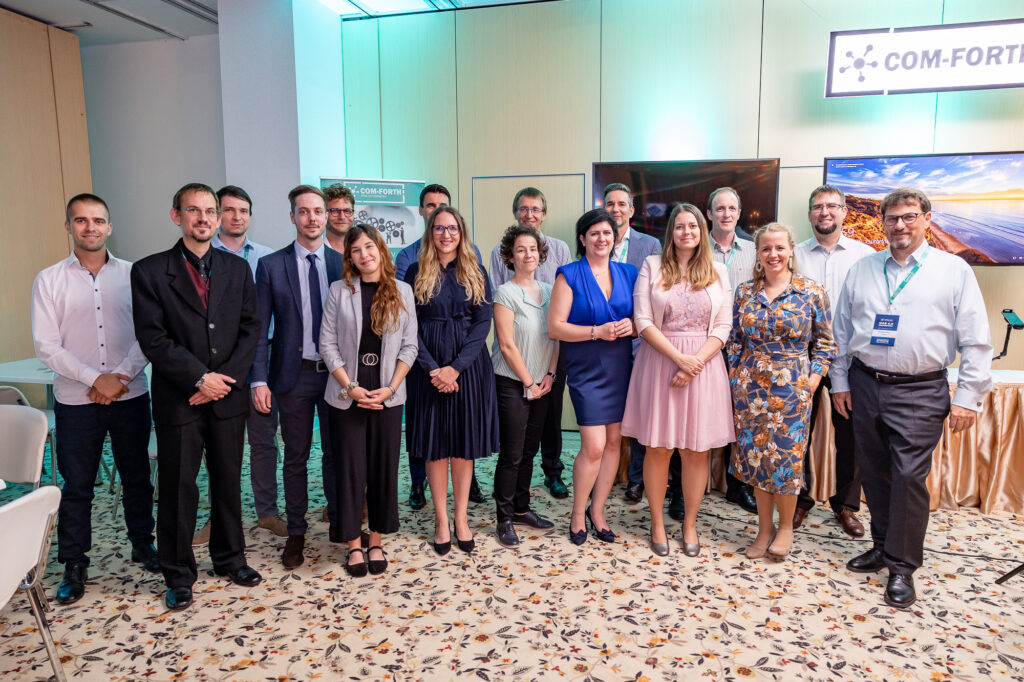We’re thrilled about our next chapter: we’re officially starting a new journey together with Software Development Academy (SDA) to create Central Europe’s biggest digital skilling and sourcing powerhouse. This is a huge step for both companies that will radically transform our ability to help people looking to step into the tech world.

Codecool + SDA = Central Europe’s biggest digital skilling powerhouse
By joining forces, we’ll be a big, trusted provider who can deliver a far higher number of quality candidates to our corporate partners: 15.000-20.000 individuals in a year. We’ll open up a broader portfolio of digital skilling, upskilling, and reskilling programs that our students and partners can take advantage of.
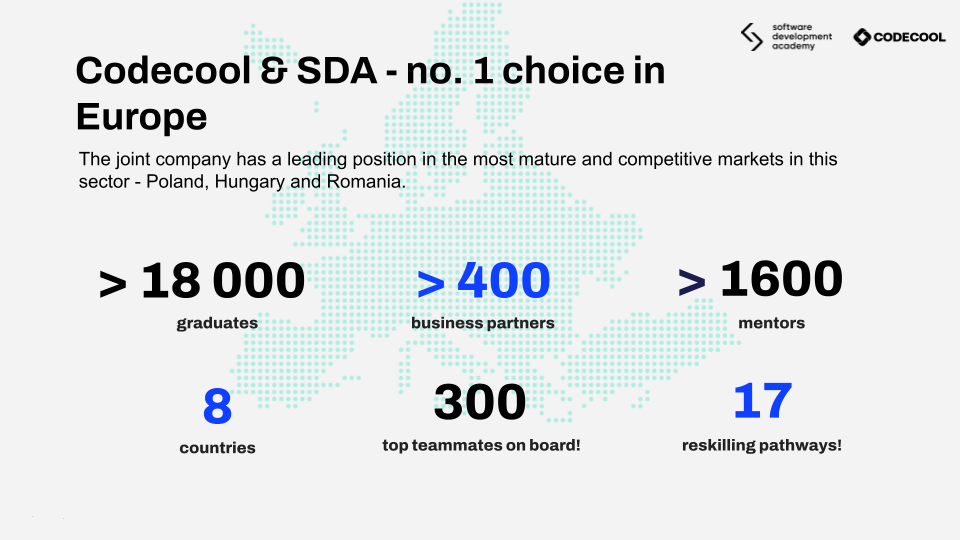
What you need to know about the two companies
We’re two leading Central-European EduTech companies who have already come a long way during the last 7 years. We share a similar vision but until now we’ve each approached it from slightly different angles.
Codecool (started in Hungary) is present in 4 countries: Poland, Austria, Hungary, and Romania. It has more than 2000 graduates and 300+ corporate partners. The company’s main course is the Full-Stack Developer training that comes with a Job Guarantee.
SDA (started in Poland) is present in 6 countries: Estonia, Poland, the Czech Republic, Slovakia, Romania, and Albania. It has more than 15.000 graduates and 100+ corporate partners. The company offers a variety of shorter IT courses that prepare candidates to enter the tech industry.
Codecool provides longer courses with a job guarantee and places graduates to corporate partners in the region, while SDA offers a wide variety of shorter courses. However, both companies provide high-quality training and teach digital competencies, programming, and IT skills. Different approaches but ultimately, the shared goal of changing people’s lives through digital skilling.
In addition, both companies offer customized reskilling and upskilling projects to their corporate partners. They have also undertaken robust governmental reskilling projects: 10.000 ICT specialists in Albania by SDA and 600 engineers in Hungary by Codecool.
Put those two approaches together and what you get is the perfect product portfolio that serves all market segments.
What benefits does the merger bring to our corporate partners?
As a digital skilling powerhouse, we’ll now be present in 8 countries: Estonia, Poland, the Czech Republic, Slovakia, Hungary, Austria, Romania, and Albania. We’ll have a network of more than 1600 mentors and provide 17 reskilling pathways.
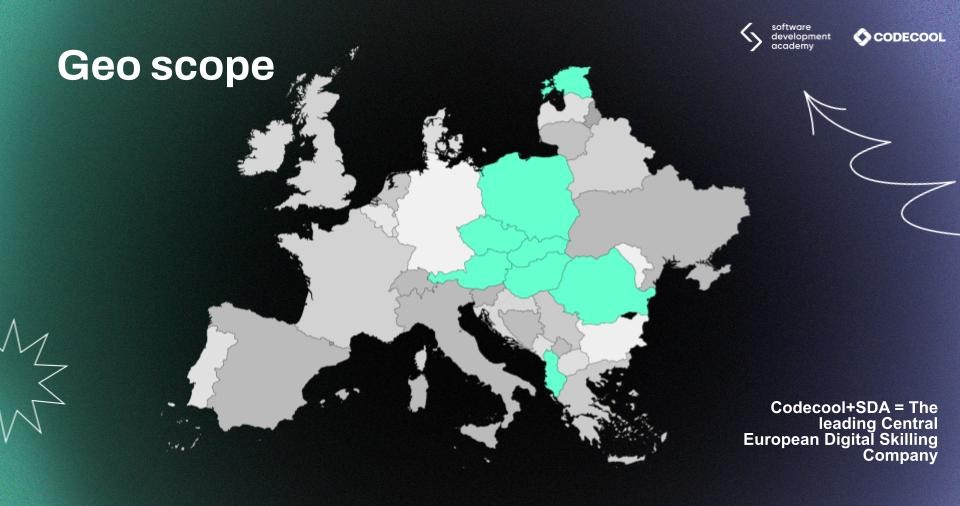
“There is a global battle for digital talent, especially coders and programmers, so our main aim remains to provide high-quality digital skilling for employees and employers – but on a much larger scale,” said Michał Mysiak, CEO of SDA, who will lead the merged company as the CEO. “We believe that the combination of Codecool and SDA – with distinct regional and category strengths – will boost the skills level of Central Europeans who are hungry to learn and will be pivotal in the digital transformation of Europe and beyond.”
Since we’ll have the biggest product development capacity in the region, we’ll be able to produce new courses faster and react to the ever-changing technological landscape as well as the unique needs of our business partners quicker.
“This is an exciting new chapter for both companies where we create a real powerhouse for digitalization,” said József Boda, CEO of Codecool. “Through our consolidated digital skilling programs, we confidently continue to serve the needs of individuals, companies and governments. Graduates from our courses are in high demand, especially as Western European and US organizations look to outsource or find additional talent while lowering costs.”
Combined, we’ll train 15.000-20.000 individuals in a year for our 400+ corporate partners. We’ll be able to serve partners’ needs far better, not only in terms of the variety of tech-skilled people but also on a larger scale and from more countries in the region.
We’ll also keep expanding our geographical coverage and product offering next year. This is required as the Central European region has the biggest digital talent pool on the continent, and there’s an unprecedented need for digitally skilled people in the next decade.
We’re here to serve this!
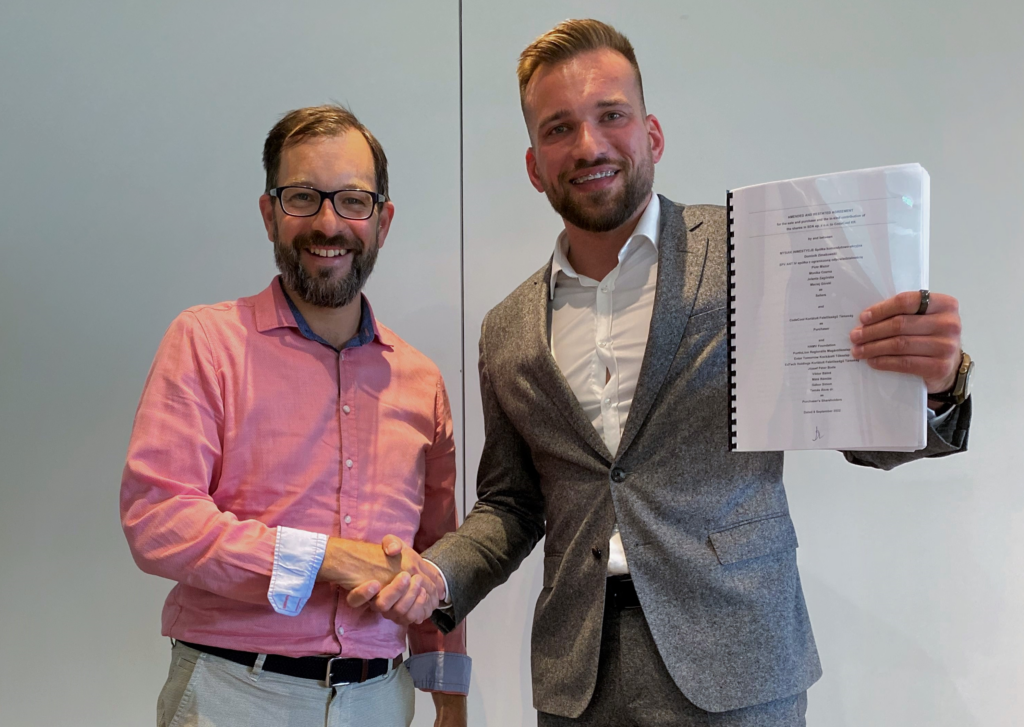
Looking for next-generation tech talents?
If you’re looking for digitally skilled people, consider partnering with us. We have an extensive and active network of quality tech talents and flexible recruitment processes, offering you quick access to top talents.
We are also here if you’re interested in up-skilling or re-skilling your existing employees. We’re happy to tailor our flexible training programs to your needs, turning them into your most valuable and skilled digital resources.
Interested in what our new joint company has to offer you? Let’s talk!










